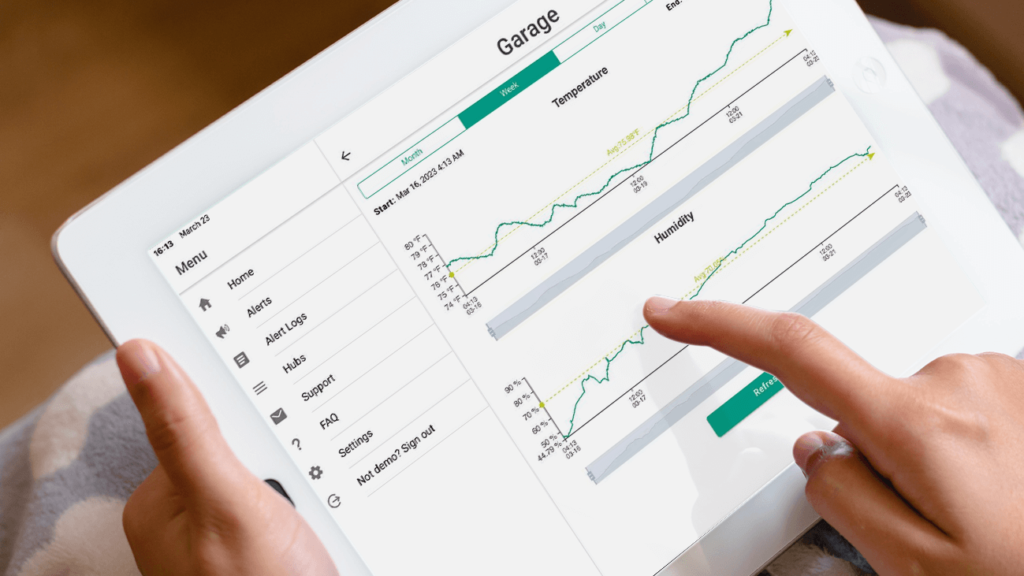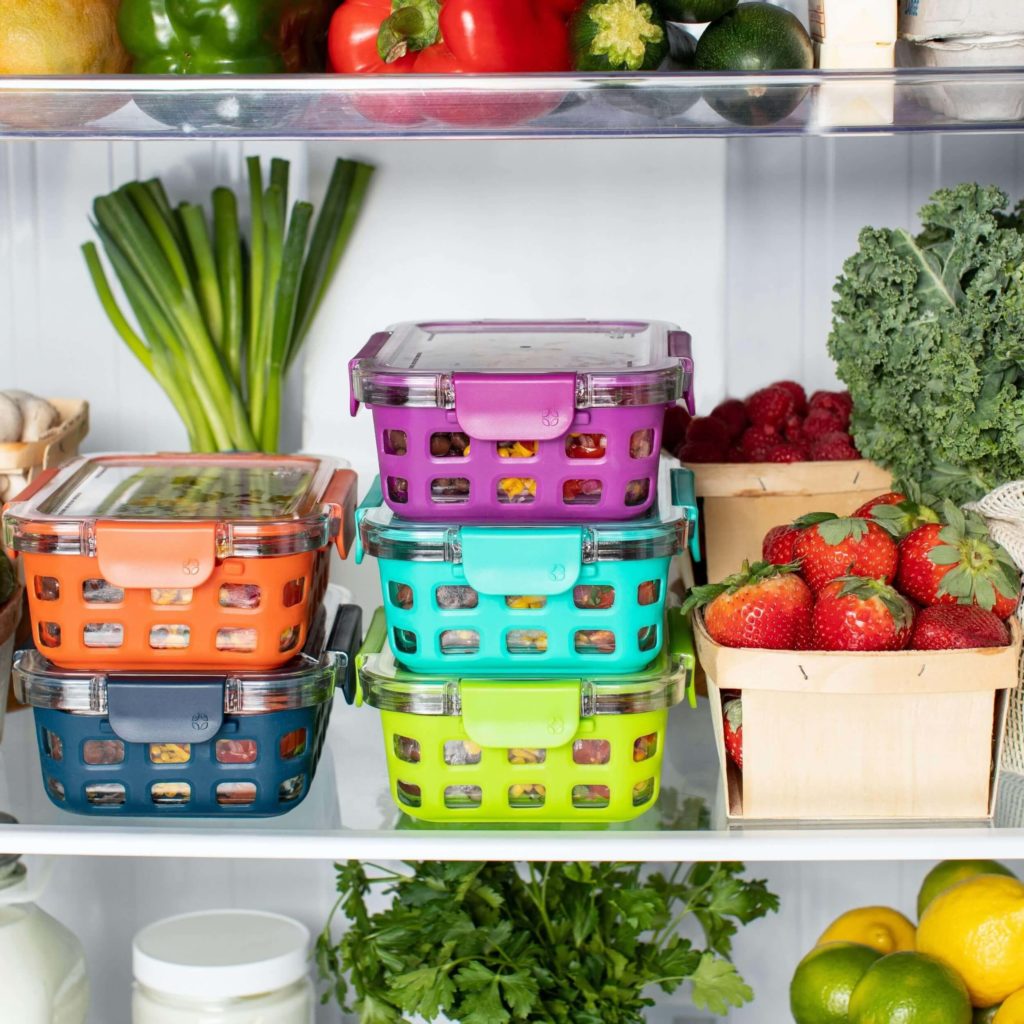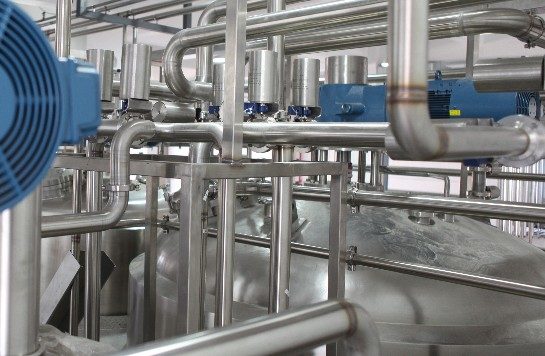
- Background -
Temperature plays a crucial role in many industries.
For example, in the food industry, temperature is important for preserving and storing food, as well as for cooking and processing. In the pharmaceutical industry, temperature can affect the stability and effectiveness of medications. In the manufacturing industry, temperature can impact the performance and durability of products, as well as the efficiency of production processes. In the energy industry, temperature is important for the generation, transmission, and distribution of electricity. Temperature can also be used as a measure of the performance of engines, motors, and other mechanical devices.
In short, temperature is an important factor that can have significant effects on the quality, safety, and efficiency of products and processes in many different industries.

Food Industry
Food safety: Temperature is a key factor in preventing the growth of bacteria and other microorganisms that can cause foodborne illness. Foods need to be stored, handled, and cooked at appropriate temperatures to prevent the growth of harmful bacteria.
Food storage: Temperature is important for storing food at the right temperature to prevent spoilage. For example, frozen foods need to be kept at a very low temperature to prevent thawing and bacterial growth, while perishable foods like fruits and vegetables need to be stored at a cool temperature to keep them fresh.
Food processing: Temperature is often used to cook, bake, roast, or sterilize food during processing. For example, bread is baked at a specific temperature to achieve the desired texture and flavor, while canned food is sterilized at high temperatures to kill any bacteria present.
Lab/Hospital/Pharmacy
Chemicals and reagent storage: Many chemicals and reagents are sensitive to temperature and can decompose, react, or become unstable if exposed to extreme temperatures. For this reason, it is important to store chemicals and reagents at the appropriate temperature to ensure their purity and effectiveness.
Equipment maintenance: Temperature can affect the performance of equipment. Many types of laboratory equipment, such as incubators, refrigerators, and freezers, are designed to operate within a specific temperature range. If the temperature falls outside of this range, the equipment may not work properly or may be damaged.
Medicine storage: Some medications are sensitive to temperature and can impair their effectiveness if exposed to inappropriate temperatures. For this reason, it is important to store medications at the optimal temperature to ensure their safety and efficacy.
Vaccine storage: Vaccines generally need to be stored in a refrigerator or freezer to maintain their potency. The specific temperature range for vaccine storage depends on the type of vaccine and can range from 2°C to 8°C (35°F to 46°F) for refrigerated vaccines and -15°C to -25°C (-5°F to -13°F) for frozen vaccines. Without being stored at the constant temperature, they should not be used and should be disposed of according to the guidelines, which causes the resource loss.
Greenhouse
Plant growth: Temperature is crucial in a greenhouse because it affects the growth and development of plants. Greenhouses work by trapping heat from the sun and other sources to create a warm, humid environment that is conducive to plant growth. This allows plants to grow and thrive in climates that might otherwise be too cold or inhospitable.
Equipment maintenance: Like circulation fans, exhaust fans and vents, these greenhouse facilities maintain the proper growth environment. If these facilities don’t function well, it would cause the abnormal temperature change and then threaten plant growth.


Manufacture and Production
Facility operation: Like facility malfunction, too abnormal temperature of the machine, if these issues can not be discovered timely, they would lead to production line downtime or the quality of the final product.
For instance, if a material is heated too much, it may become too brittle or prone to cracking, while if it is not heated enough, it may not reach the desired level of strength or durability. Similarly, if a material is cooled too quickly, it may become too hard or brittle, while if it is cooled too slowly, it may not reach the desired level of toughness or flexibility.
- Challenges -
As we can see, any industry can’t neglect the importance of temperature management. However, all of them are facing the same challenges:
- Inefficient manual temperature logging
- Lack of real-time monitoring
- Lack of early warning mechanism
Due to these factors, people from all different walks of life have suffered from the unexpected accidents. For instance, for restaurant managers, they would encounter the food spoilage; for researchers in the lab, they would face with the chemical reagent loss; for greenhouse administrators, they would concern whether the plants grow in the proper environment or not.
Hence, is there a solution that can not only monitor the temperature in real time, but also alert people timely when the abnormal situation occurs? By doing so, it could avoid the unnecessary resource loss and reduce the extra high cost.
- Benefits -
- To realize the remote monitoring in real time
People can inspect the temperature conditions anywhere at any time. Peace of mind.
- To foresee the potential risk and alert in time
Abnormality identification and alert notification can reduce the people’s concern and they can focus on other more important things.
- To replace the traditional manual recording
With automated data recording, people no longer spend time in recording the data by themselves, which enhances the working efficiency.
- To reduce the loss and save the unnecessary cost
Through 24/7 monitoring, it keeps an eye on the things that you want to monitor, thereby ensuring everything is safe and avoiding the small issue becoming a serious issue.
- Future -
In the future, adapting remote monitoring will become a trend across various industries, which brings much convenience and boost the efficiency.
With 24/7 automated monitoring, you can access real-time environmental data on your devices, empowering you and your team with better insights, management, and decision-making capabilities. Our reliable IoT-based environmental monitoring solution will try our best to propel your business development forward.
Want to learn more about the MOCREO environmental monitoring solution? Just contact us. We are willing to be your partner!
